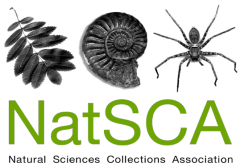Post Doctoral Research Assistant (PDRA) - Hydroscape: Disease distribution in the freshwater landscape
Role description:
The Natural History Museum is one of the world’s leading museums, internationally recognised for its dual role as a centre of excellence in scientific research and as a leader in the presentation of natural history through exhibitions, public programmes, publications and the web.
This is one of two projects (supervised by David Bass and Beth Okamura) based at the Natural History Museum that form fundamental components of a larger NERC-funded multidisciplinary research programme (Hydroscape) investigating how connectivity and multiple stressors interact to influence biodiversity and ecosystem function in freshwaters. Although connectivity is recognised to be a multi-faceted and quintessential property of aquatic ecosystems there is a critical lack of knowledge on how biodiversity and ecosystem function respond to variation in stress factors that may be influenced by different levels of connectivity. This is in part due to a long tradition of focusing on individual stressors and sites. The overall research programme is designed to gain essential insights for future management of freshwaters by working across a hierarchy of spatial and temporal scales and covering a range of freshwater habitat types in different landscapes to address these issues. A central proposition of the project is that increasing connectivity entails a basic tension between desirable (promoting resilience) and undesirable (increasing the spread and impact of stressors) outcomes.
Many diseases of freshwater organisms are emerging in new geographic locations and increasing in prevalence and severity, often in association with environmental stress. This project will investigate how multiple stressors and connectivity impact the distributions and abundances of selected disease agents (spores, oocysts, eDNA) in water samples. The samples will be variously processed to assay disease agents of fish (Dermocystidium - protists causing disease in eels and other fish, and a myxozoan causing proliferative kidney disease in trout and salmon), an otter disease agent (Toxoplasma gondii, suspected to be introduced via run-off of cat faeces) and a human disease agent (Cryptosporidium, a protist entering waters via run-off from agriculture and urban wastewater).
Candidates for the project should have a PhD involving molecular taxonomy or related field of molecular evolution/ecology and will thus have skills in molecular biology, bioinformatics, and statistical analyses and demonstrated organisational capacities for creating, maintaining and analysing large datasets. The work will entail extensive fieldwork to collect and process environmental samples from multiple sites in three regions of the UK (Norfolk Broads, Lake District, Greater Glasgow) in spring, summer and autumn. Samples will be subsequently analysed using previously developed qPCR approaches (for myxozoan, T. gondii, and Cryptosporidium) and amplicon sequencing to produce MiSeq libraries (for Dermocystidium), plus relevant bioinformatics analyses. There would be opportunity for further development of modelling skills via interactions with modellers to elucidate how distributions and abundances of disease agents are influenced by measures of connectivity (e.g. hydrology, bird densities, human activity, etc.) and stressors (e.g. pollution, eutrophication, heavy metals). The project is also expected to generate insights on disease as a stressor with impacts on hosts, biodiversity and ecosystem function.
Salary: £32,500 per annum plus benefits
Contract: 30 months fixed term contract
Hours: 41 hours per week including lunch breaks
Closing date: 9am on Monday 8 February 2016
Role competences:
BEFORE beginning your application - Please read the section below about the ‘Online Application Process’ carefully.
If you wish to be considered for this role you will need to address each of the following competences in the ‘other information’ section of your online application:
1. PhD involving population genetics, phylogeography or related field of molecular evolution/ecology
2. Familiarity with molecular biology (wetlab)
3. Experience in studying population connectivity
4. Statistical analysis
5. Experience in working effectively with others
6. Production of scientific publications
7. Ability to train and supervise complementary research conducted by MSc or PhD students
8. Ability to contribute to development of research proposals
